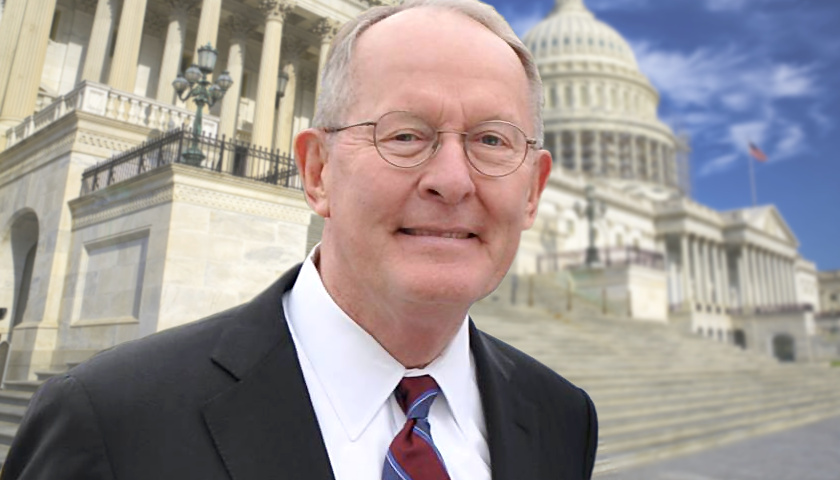by Senator Lamar Alexander
When I wrote the law fixing No Child Left Behind, I was thinking about Tennessee teachers like Candace Hines, who teaches kindergarten in Memphis. Earlier this year, Candace wrote that the new law “empowers Tennessee with the responsibility to decide how to close achievement gaps, improve schools and make sure that all our children succeed.”
No Child Left Behind let Washington make decisions about Tennessee’s classrooms— and it created a national school board. My goal was to return decisions about how best to educate our children to the people closest to our students—to Tennessee teachers like Candace, our local school boards, and our state—and to end the national school board.
When I was running for Senate in 2014, Tennesseans all across the state would tell me that Congress needed to end the Common Core mandate, and a year later I passed a law to do exactly that. If you’re wondering why parents and teachers don’t worry about Washington meddling with state standards anymore, it’s because the new law explicitly prohibits Washington from mandating or even incentivizing Common Core or any other specific state standards. It is up to states to decide their academic standards.
Another one of the biggest changes we made with the law was to let Tennessee decide what to do about tests.
So many folks told me they were worried about the number of tests their kids were taking, and that teachers were teaching to those tests.
I started out thinking we should get rid of federally required State tests— States are required to test students 17 times over the course of a student’s schooling from grade 3 through high school, or just under 2 tests a year. But what we learned was that these tests themselves weren’t the problem— it was that Washington had too many strings attached to the results of those tests.
Under No Child Left Behind, which was implemented by the Bush and Obama Education Departments, states were mandated to meet federal goals or risk being labeled “failing,“ forcing a flurry of additional tests to get ready for the annual tests required under federal law. In fact, we had testimony in the Senate education committee I chair that one county in Florida imposed 183 tests under No Child Left Behind.
But the Every Student Succeeds Act, the law I wrote fixing No Child Left Behind, says Tennessee decides what to do about the results of these 17 tests.
In the words of two Memphis teachers, Soya Moore and Jessica Hurtley, “ESSA put issues such as teacher evaluations, student assessments, and school reform directly into the hands of state education departments and school districts. …ESSA provides a window of opportunity for teachers to get in on the policy discussion and the law’s implementation planning.”
I thought it was important that a parent in Maryville or Johnson City or Jackson who doesn’t like the number of tests their child is taking or the school curriculum be able to complain straight to the school board and the state— not have to take an airplane to Washington, DC, to make their case.
Tennessee has taken advantage of mix of the new law’s freedom and flexibility, and put together one of the nation’s best examples of an innovative plan.
For example, Tennessee has developed a state plan with ambitious goals that focus on a students’ success in and outside of the classroom.
Tennessee Education Commissioner Candice McQueen testified in the Senate education committee last year, and we heard about the state’s development and use of a Ready Graduate indicator that will evaluate students’ readiness for life after high school, including college, career or military service.
When we passed this law, I believed— and said—that we were unleashing a new era of innovation and excellence in student achievement – one that recognizes that the path to higher standards, better teaching and real accountability is classroom by classroom, community by community and state by state – and not through Washington, D.C.
I am eager to see what this new chapter holds for our nation’s students.
– – –
Senator Lamar Alexander (R-TN) has served in the US Senate since 2003. Prior to his election to the Senate, Alexander served as the Governor of Tennessee from 1979 – 1987.






Congress should go further in this decentralizing direction, by repealing its annual testing mandate altogether when this law comes up for reauthorization in a little over two years. This would restore the responsibility for educational decision-making to where it was before No Child Left Behind, during the Clinton and earlier administrations, and raise American states’ educational sovereignty to match the level still enjoyed by Canadian provinces. Such states should then follow the Swiss example and devolve their educational authority still further, to their local districts. At that level, communities might well establish local education agencies that can unleash “a new era of innovation and excellence in student achievement”, one prevented for now by the legacies of President Obama’s misguided educational maladministration, the “Every Student Succeeds” act and the Common Core.